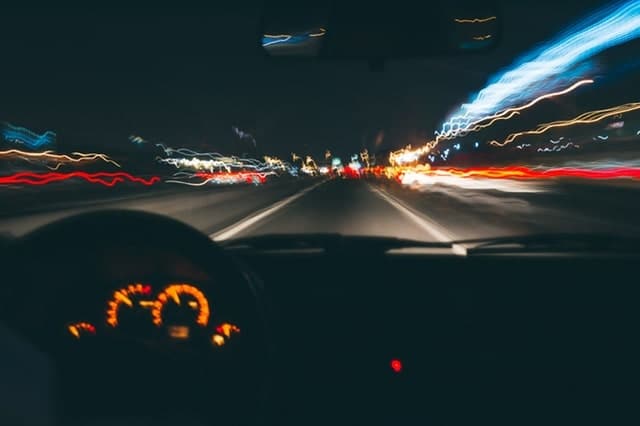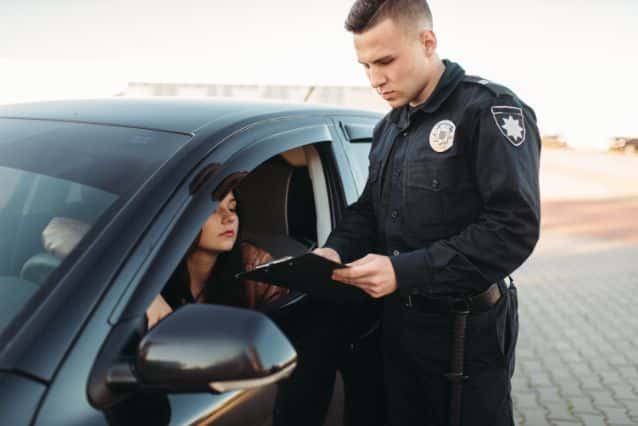












Dashcam and Bodycam Footage in DWI Cases
If you ever get pulled over for driving under the influence (DUI) or driving while intoxicated (DWI) , you need to know your rights. It’s vital to cooperate with the arresting officer. If they ask for it, provide proof of insurance and your driver’s license.
Dashcam and bodycam footage in DWI cases can also serve as a vital tool to protect individuals by providing objective evidence of their behavior during a traffic stop. This is because DUI cases rely on solid evidence to determine whether someone is guilty or innocent.
In recent years, dashcams and bodycams have become more common in law enforcement. These cameras record what happens during traffic stops. They provide essential video evidence for a DUI case.
This guide will explain how dashcams and body cameras work in Missouri. It describes how police officers use them. It also discusses why you should have legal assistance when facing DWI charges. For additional information, call a skilled vehicle and motorcycle accident lawyer. Contact criminal defense attorneys from the Missouri DWI & Criminal Law Center today.

How Dashcam and Bodycam Footage is Used in Court
Dashcam and bodycam footage can provide valuable information regarding how events unfolded. This information can be used in court.
Dashcams and bodycams capture crucial evidence, which is used by prosecutors and defense attorneys to build their DUI cases. The state relies on the footage to prove its case against the accused. However, defense attorneys can use it to identify discrepancies or examples that contradict the prosecutor’s statements.
Besides determining whether the officer acted appropriately, it can also indicate whether the suspect acted unlawfully.
Body Camera Footage in Field Sobriety Tests
It’s important to note that field sobriety tests can be administered incorrectly. These tests are subjective and based on the officer’s opinion at the scene. Different officers may interpret the same test differently. This can lead to varying conclusions about intoxication.
Tests like the one-leg stand and walk-and-turn are designed to challenge your coordination and balance. The horizontal gaze and eye movement tests can be affected by biological factors. The modified alphabet and counting tests rely on memory and focus, both of which can be impaired under stress.
Body camera footage in field sobriety tests provides crucial visual evidence that can be used to accurately assess a suspect’s level of impairment and the effectiveness of law enforcement procedures. It objectively records the suspect’s behavior, balance, coordination, and response to standardized tests, aiding in fair and transparent legal proceedings.
Admissibility of Dashcam and Bodycam Footage
The admissibility of dashcam and bodycam footage depends on several factors. Courts consider relevance, authenticity, and reliability when determining admissibility. The defense and prosecution must establish a chain of custody and accuracy in preserving evidence. They should address objections related to fairness or prejudice.
Problems With Dashboard Cameras

Using dashcams and bodycams in DWI cases has benefits, but there are also some problems to consider. Below are a few of the reasons their use can be disputed in court:
- Video quality: The quality of the recorded videos can be an issue. Factors like low light, camera placement, and technical limitations can affect how precise and accurate the footage is. If the video quality is poor, it may be hard to see important details, making the evidence less reliable.
- Limited perspective: Dashcams and bodycams only capture particular views. Dashcams show what’s happening in front of the vehicle, while bodycams show things from the officer’s perspective. This limited view might miss important angles or leave out parts of the incident, which could lead to incomplete evidence.
- Subjectivity and interpretation: Different people may see things differently. Personal biases can influence how the evidence is understood. This subjectivity can affect how much weight the footage holds in court, making it harder to reach a clear conclusion.
- Need for additional evidence: While dashcam and bodycam footage are valuable, they may not be enough in DWI cases. Other evidence is often required. This can include breathalyzer tests, witness statements, or field sobriety tests. Depending solely on the footage may leave gaps and not provide a complete picture of what happened during the DUI incident.
- Storage protocols for dashcams: Proper storage protocols are crucial to preserving dashcam footage as evidence. Law enforcement agencies have guidelines for retaining and archiving video recordings. These protocols ensure the footage’s integrity, preventing tampering or loss of evidence.
- Privacy concerns: The use of dashcams and bodycams raises privacy concerns. These devices record interactions in public, capturing not only the driver’s actions but also those of others nearby. Balancing the need for transparency and accountability with respecting privacy rights is essential. Strict rules and guidelines must be in place. These can ensure recorded footage’s proper use, storage, and protection to prevent misuse or unauthorized access.
As you can see, there are challenges with dashcams and bodycams. They still have an essential role in providing visual evidence in DUI cases. They can contribute to a fair legal process alongside facial ID technology and other evidence.






